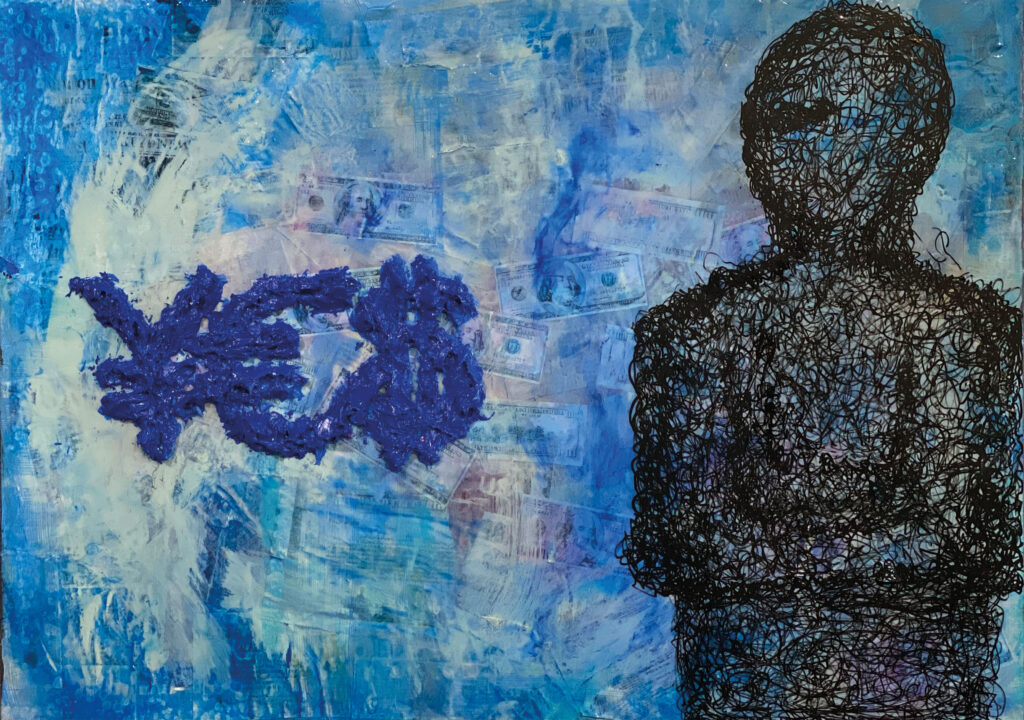Money is a collective belief system grounded in trust. Money is the greatest trust system devised by humans. Society collectively assigns value to certain things like money. Most of these things are pieces of paper bearing a president’s image in green, blue, or red. They are considered equivalent to the number printed on them. Items deemed to be of equal worth, are exchanged for these paper notes. If your bike is valued at $90 and another person agrees, they will pay you $90 to buy it from you. The concept of value is subjective and not fixed. It is entirely arbitrary. This subjective value system leads to the creation and enhancement of products and services that improve our quality of life. We continue pursuing these products and services as they fulfill our wants and needs. They provide us with value.
However, individual incomes and circumstances vary. For example, you have only $50 but want to purchase my $90 bike. In this case, I can offer you the bike immediately on credit, I will then allow you to pay the remaining amount in small installments over a year. As this arrangement inconveniences me, I may add an extra $7 to the outstanding $40 owed, known as interest.

Why We Need Money
It serves as a practical medium for exchanging valuable goods. It is a universally accepted and verifiable form of payment. Money also is a store of value. All parties involved in a transaction agree that it can be exchanged for other valuable assets. Money resolves the challenge of finding a party interested in your specific trade offer.
Why Money / Currency Works
Trust forms the foundation of all human interactions. All aspects of life are based on trust. Family, religion, education, healthcare, governance, and other spheres all function smoothly because of trust. Money is the greatest trust system devised by humankind. Our entire monetary framework is based on trust. Trust plays a vital role in all economic activities.
Money is also an abstract representation of value. In essence, the currency itself holds no intrinsic value. Banknotes are just colorful pieces of paper of varying denominations. They may bear a declaration asserting their status as legal tender in a specific nation. The public trusts that these notes and coins will be accepted as valid forms of money. We believe in the promised value inscribed on the paper. If it has number 10 on it, we believe that it can buy goods or services worth $10. The global monetary system works seamlessly because of trust. It relies on the collective belief that paper notes, coins, and digital numbers in banks and wallets will be universally accepted. Without public consensus, the system would cease to function. If people lost faith in the value of money, they would stop using it. This would lead to the collapse of the entire system.
Money is the only human-created trust system capable of bridging diverse cultures. This system doesn’t discriminate based on religion, gender, race, age, or sexual orientation. Money connects us. Through money, even individuals who don’t know each other and don’t trust each other can effectively collaborate. It enables transactions between buyers and sellers who don’t even need to be in the same place. Money transcends geographical boundaries, enabling business dealings not only within local communities but also with individuals across different nations.
How Money / Currency Works
Money only exists and work because we all believe in it. We trust that in accepting it in exchange for a given good or service that we produce, we can later exchange it again for another good or service that someone else produces of an equivalent value. However, if a particular form of money loses acceptability, it becomes worthless. Therefore, money works as a medium of exchange and a store of value.
Historically, and even today, money often comprised precious metals such as gold and silver. People would entrust their gold or silver to a reputable figure like a goldsmith or bank official. In return, they would receive banknotes which would act as a receipt. These currency forms held value due to the trust placed in the goldsmith or bank officer to return the precious metals upon request.
Currency and debt
Currently, debt creates currency, and debt is solely based on trust. Trust forms the bedrock of all monetary and banking-related activities. You trust the banks and the rules regulating those banks. A credit score essentially is a system of trust. It reflects the level of trust extended to an individual by the bank. It is based on their track record of debt repayment. Higher trust levels means that you have a superior credit score and lower borrowing costs.
Central banks issue national currencies. They derive their value from public trust in governmental institutions. Government debts, secured through the taxing authority of the issuing country, back or support these currencies. The public trusts that governments will fulfill their debt obligations. By utilizing this currency, individuals exhibit trust that the debt levels are manageable. Using that currency ensures that the requisite taxes for debt repayment are reasonable and sustainable. Trust in the system is also placed to maintain the monetary value and prevent depreciation through inflation.
Maintaining a balanced economy requires a low sovereign debt-to-Gross Domestic Product ratio. Excessive ratios make debt repayment challenging without imposing significant taxes on citizens. Countries exhibiting high productivity and competitiveness tend to have stronger currency values compared to others. This is why currencies like the Singaporean dollar or Swiss franc are more valuable than say, currencies like the Zimbabwean dollar.
Establishing trust in Currency
There are various aspects which establish this trust. They include:
- Trust in the management and regulation of currency by entities like central banks.
- Trust in the autonomy of central banks free from political influence.
- Trust in the openness of monetary and fiscal policies.
- Trust in financial regulations that safeguard the integrity and stability of the financial system, shield consumers and deter fraud.
- Trust in the prevention of counterfeiting, which undermines confidence in the authenticity and value of the currency.
- Trust in the purchasing power of the currency, averting hyperinflation that could erode trust.
- Trust in secure payment systems safeguarding personal and financial data and resilient against cyber threats.
- Trust in a robust institutional framework, encompassing legal systems and regulatory structures.
- Trust in a nation’s economic and political stability, fostering global trust in its currency.
- Trust in the stability and convertibility of currencies for international transactions.
- Trust in sound fiscal discipline and sustainable fiscal policies, such as restricted budget deficits and manageable debt levels.
- Trust in a nation’s capacity to regulate its currency and monetary policy.
- Geopolitical factors (such as global economic conditions, trade balances, tensions, conflicts, or economic sanctions) influence trust.
- Capital flight impacts trust, where individuals and businesses shift funds out of a nation due to concerns about currency stability or economic circumstances.
Should trust in any of these factors diminish, the value is likely to decline. For instance, hyperinflation and other issues often arise from citizens losing faith in a currency.
Conclusion
Money is a remarkable human creation symbolizing economic value and societal influence. The value of money and currency is rooted in people’s trust in them, cultivated through diverse factors. Without trust in money, our modern society would not function. Trust enables everyday transactions, making it the most crucial investment we can pursue. The historical value of gold and silver and their use in creating valuable items owing to their aesthetics makes people trust them. Governments support fiat currencies, issued by government decree, and issued by central banks, making them trustworthy. Trust stands as our most valuable currency.

